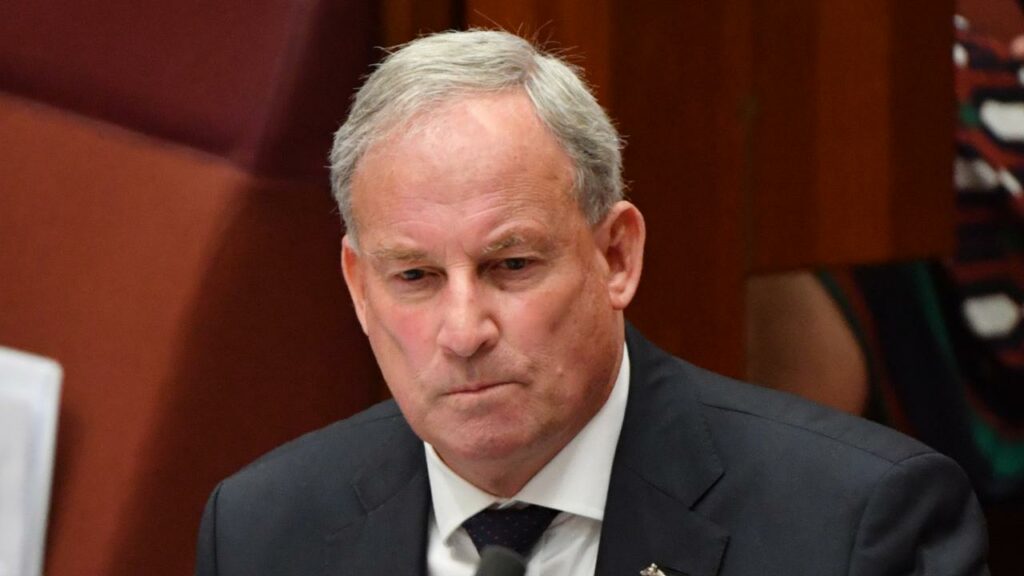Colbeck defends aged care COVID death toll
Andrew Brown |

Aged Care Services Minister Richard Colbeck says the large number of deaths in the sector from COVID-19 is not indicative of his performance, amid growing calls for his resignation.
From the beginning of the year until February 15 there have been 711 coronavirus deaths in aged care facilities, compared to the 685 fatalities throughout the whole of 2020.
As the sector battles Omicron surges and staff shortages, Senator Colbeck used an appearance at Senate estimates to slap down calls for him to resign as minister.
“We are in the middle of a global pandemic, and the completely tragic result of that is people will catch the virus across all parts of the community, and tragically, some will die,” he told the hearing on Wednesday.
“The performance in managing COVID-19 has improved.”
Senator Colbeck said he had not offered his resignation to Prime Minister Scott Morrison over issues in aged care.
Mr Morrison defended the performance of Senator Colbeck during question time, as well as the government’s handling of the sector.
“For every life that has been lost, which we grieve, we give thanks for the thousands of lives that have been saved by the actions of our aged care workers, aged care providers, the actions of healthcare workers across the system,” he said.
“The work that we have done and the additional support that we have put in place … had been there to ensure that Australia, when compared with other countries around the world have had one of the lowest rates of fatalities.”
Senate estimates was also told that 106 Australian Defence Force personnel had been deployed to assist the aged care sector, split between 21 residential facilities across the country.
The government had pledged up to 1700 ADF members would be deployed to help the sector address workplace shortages as it deals with COVID-19.
Labor aged care spokeswoman Clare O’Neil said the defence force response had come too late.
“The ADF support that has been provided so far is manifestly inadequate for the size of the problem to be solved,” she told reporters in Canberra.
“Aged care has been in its worst crisis ever, since Christmas, and now in mid-February, after the very worst of the staff shortages have passed, we now get the ADF trickling into facilities.”
Estimates was told nearly one-third of the country’s 2900 aged care facilities were currently dealing with a COVID-19 outbreak.
There are 915 facilities dealing with cases, of those 479 have been in NSW, 148 in Victoria, 176 in Queensland, 85 in South Australia, three in Tasmania, six in the Northern Territory, 16 in the ACT and two in Western Australia.
Health officials also told estimates that between four and five per cent of the aged care workforce had missed shifts due to testing positive for COVID-19.
However, officials did not state how many facilities across the country had faced staffing issues due to the pandemic and rising Omicron infections.
AAP